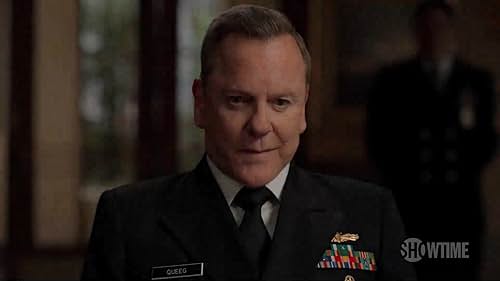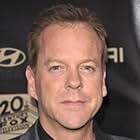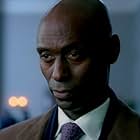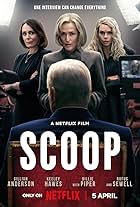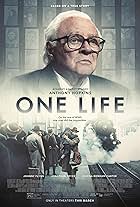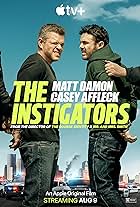Follows a naval officer who stands trial for mutiny after taking command from a ship captain he felt was acting in an unstable way, putting both the ship and its crew in danger.Follows a naval officer who stands trial for mutiny after taking command from a ship captain he felt was acting in an unstable way, putting both the ship and its crew in danger.Follows a naval officer who stands trial for mutiny after taking command from a ship captain he felt was acting in an unstable way, putting both the ship and its crew in danger.
- Awards
- 3 nominations
- Captain Davis
- (uncredited)
- Military Officer
- (uncredited)
- Lieutenant Emily
- (uncredited)
- Director
- Writers
- All cast & crew
- Production, box office & more at IMDbPro
Storyline
Did you know
- TriviaAccording to Guillermo del Toro, who served as a back-up director (due to insurance purposes), the late director William Friedkin was given 15 days to complete the shooting. He had finished shooting at the 14th day.
- GoofsOn several occasions, characters use the term "Officer of the Day" as a designation while the ship is at sea. This term is only used when a ship is in port. When underway at sea, the title would be "Officer of the DECK".
The only time "Officer of the Day" was used was after prosecutor Challee mis-heard QM3 Urban's mumble. Urban actually said Deck. She used the correct term next time it came up.
- Quotes
Challee: Sir, the witness is obviously and understandably agitated by this ordeal and I request a recess to give him a breathing space.
Lieutenant Commander Phillip Queeg: I'm not agitated in the least. I'm glad to answer any and all questions. In fact, I-I demand the opportunity to set the record straight for any derogatory statements made about me in testimony that's gone before. I didn't make a single mistake in the 15 months I was aboard the Caine, and I-I can prove it. I've had a spotless record up until now and I don't want it being discredited by these lies and distortions told by these disloyal officers.
Captain Luther Blakely: Commander, would you like a recess?
Lieutenant Commander Phillip Queeg: Certainly not. In fact, if I had any say in this, I would ask there be no recess.
- ConnectionsReferenced in Film Junk Podcast: Episode 921: Godzilla Minus One (2023)
- SoundtracksLowdown
Written by Boz Scaggs and David Paich
Published by Boz Scaggs Music (GMR) administered by Concord Global Music (GMR) and Hudmar Publishing Co. Inc. c/o Spirit Four Music Crescendo
Entirely skipping the actual events of the eponymous mutiny, almost the entire film is, as its stage play roots were, set in the room of the military court where Lieutenant Maryk (Jake Lacy), defended by Lieutenant Greenwald (Jason Clarke) and prosecuted by Lt. Commander Challee (Monica Raymund), is on trial for taking command under Chapter 11 of Navy regulations from his commanding officer, Commander Queeg (Kiefer Sutherland), in the middle of a maelstrom where Maryk, along with his friend and fellow officer Lieutenant Keefer (Lewis Pullman), decided that Queeg was acting insanely in pushing them south instead of north into the maelstrom when the storm had gotten too violent for the USS Caine to remain afloat any longer. If Maryk's decision was in line with Navy regulations, the removal of Queeg was lawful, but if not, then it was mutiny, the first since the USS Sommers more than 150 years prior.
These sorts of adaptations are really highlights for directing and, in particular, acting. Friedkin offers little in terms of changes to the basic story, updating dialogue to reflect the setting of 2022 instead of the Second World War and probably a couple of smaller things (I suspect the dialogue around mental illness has been updated). So, in a similar vein as approaching his adaptation of 12 Angry Men, the focus turns towards the actors mostly, and this is where the film really does do quite well. The central performance is Sutherland and Queeg, a bit of an oddball who seems put together nonetheless that Greenwald steadily dismantles through the use of small anecdotes throughout his career where he's obsessed with petty things to unmake him in front of the court, led by Captain Blakely (Lance Reddick).
The first half is more about setting the stage, though, with expert testimony about how to handle a minesweeping vessel in a storm and emphasis on two doctors who have observed Commander Queeg, noted his eccentricities, but determined that he was able to serve and to lead in the Navy. Greenwald dissects these pieces of testimony for exceptions and rhetorical situations that might create the groundwork for the turn in the storm to be correct and for Queeg to crack under intense pressure.
The focus on performance is really in the back end, though, with Maryk taking the stand in his own defense with Lacy feeling alternatively confident in the rightness of his course of action as well as completely in over his head in the face of Challee's questioning. It's also where Queeg returns to the stand to be confronted by all the little tyrannies he placed upon his men, including essentially tearing the ship apart to find an extra key to the galley to explain a missing serving of strawberries. Queeg getting on the stand to defend these calumnies is the real center of the film with Sutherland showing Queeg's descent in expert detail until the moment he realizes that he's lost.
I think my only real complaint is the ending. This gets handled better in the first cinematic adaptation of the novel, The Caine Mutiny, since it actually spends time on the ship to dramatize events, giving Keefer more screentime which is key to understanding the real backstory of how and why the action that led to the accusation of mutiny came about. Keefer is at the center of that, and in this adaptation, Keefer is largely forgotten for a very long section, his testimony happening early and never really being brought up again until the very final scene, the only scene not set in the courtroom. It's a twist, but it kind of feels like it comes out of no where because we don't have access to much of the supporting material in the forms of conversations between Keefer and Maryk that are present in both the novel and the original cinematic adaptation.
Still, with that hiccup, this remains a gripping portrait of a flawed man being put on the spot for following regulations, a man who could become obsessed with tiny imperfections in his men that would reflect badly on him. Was he crazy the moment he demanded that they follow regulations southward instead of turning northward considering the incredible, one-in-a-million situation that they may have been in? The film never answers it, but Queeg following regulations in an extreme situation after a history of petty tyrannies doesn't seem enough to destroy his career, and yet that's what Greenwald sets out to do.
There's a certain tragedy to it all. I think I feel it more completely in The Caine Mutiny, but in The Caine Mutiny Court-Martial the effect is similar. It's an accomplished, late-stage movie from a filmmaker who understood filmmaking after decades of practicing it, using his final go as a celebration of actors, a look into how pursuing something can change the pursuer, and the murky space of morality in the face of extreme duress. Honestly, it feels like a better sendoff than Killer Joe would have been.
- davidmvining
- Jul 11, 2024
- Permalink
- How long is The Caine Mutiny Court-Martial?Powered by Alexa
Details
- Release date
- Country of origin
- Language
- Also known as
- Військовий трибунал по справі про заколот на Кейні
- Filming locations
- Production companies
- See more company credits at IMDbPro
- Runtime1 hour 48 minutes
- Color
- Aspect ratio
- 1.78 : 1
Contribute to this page


